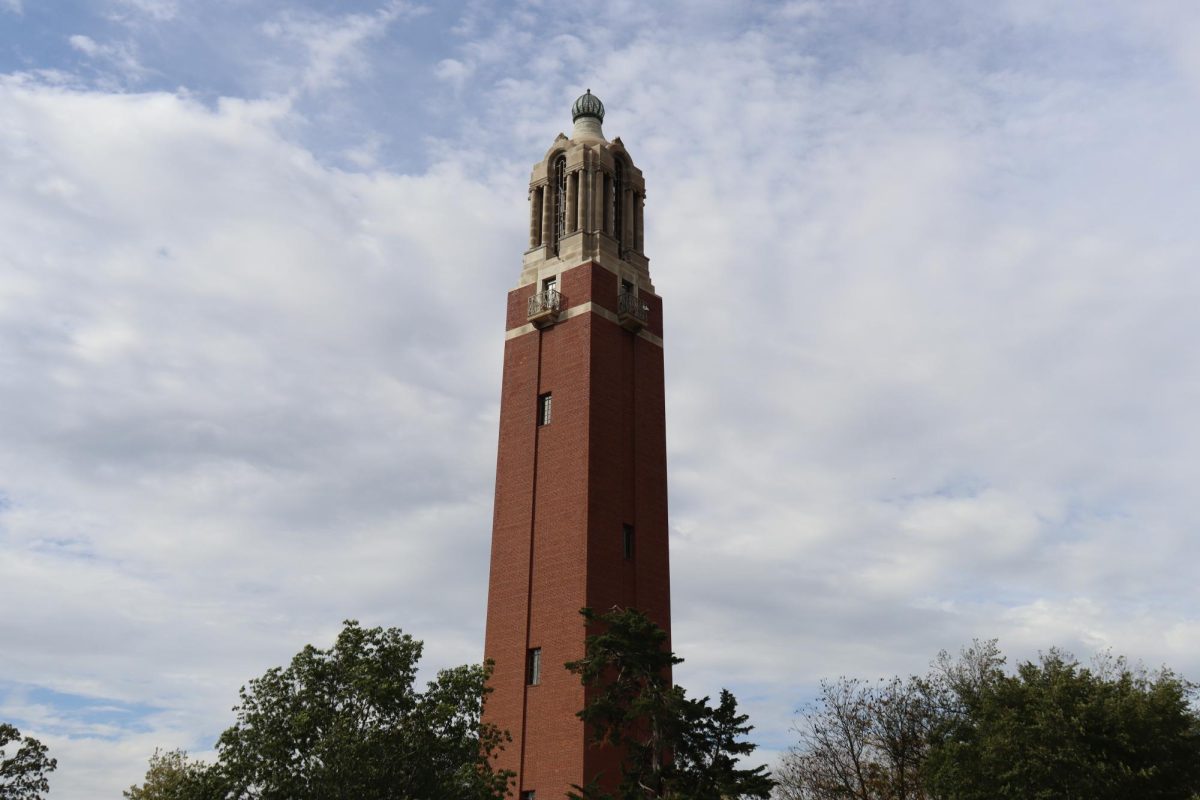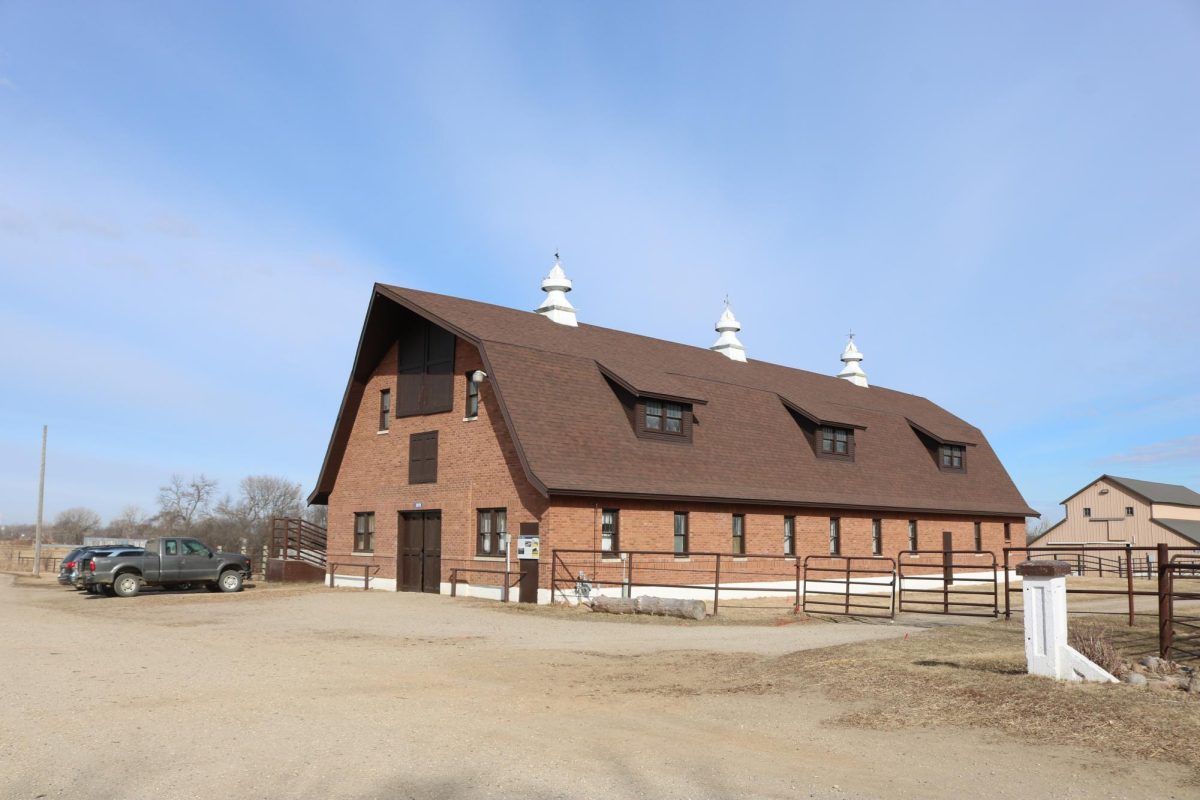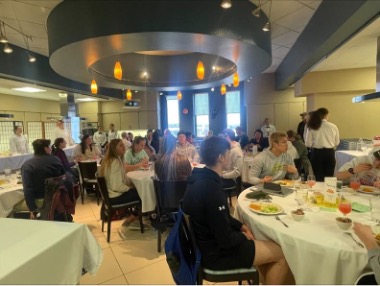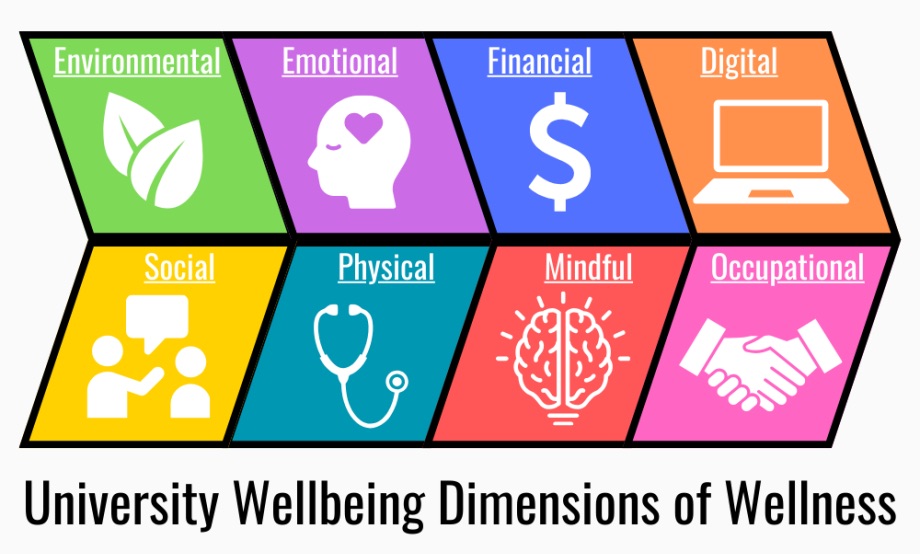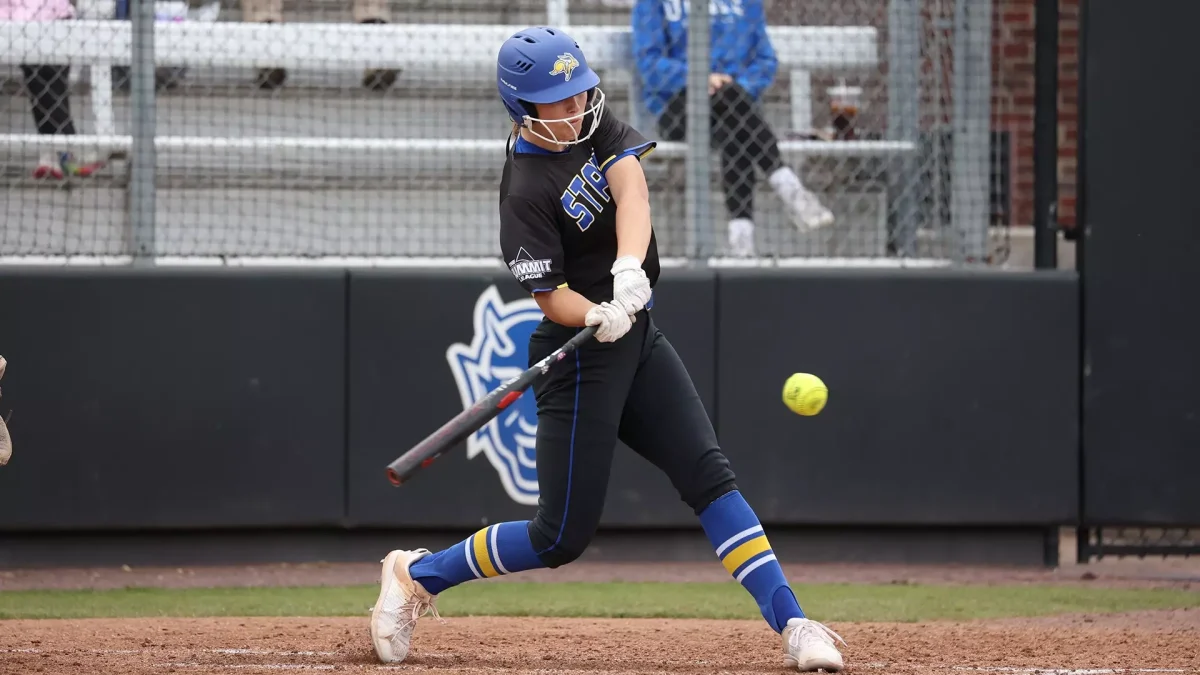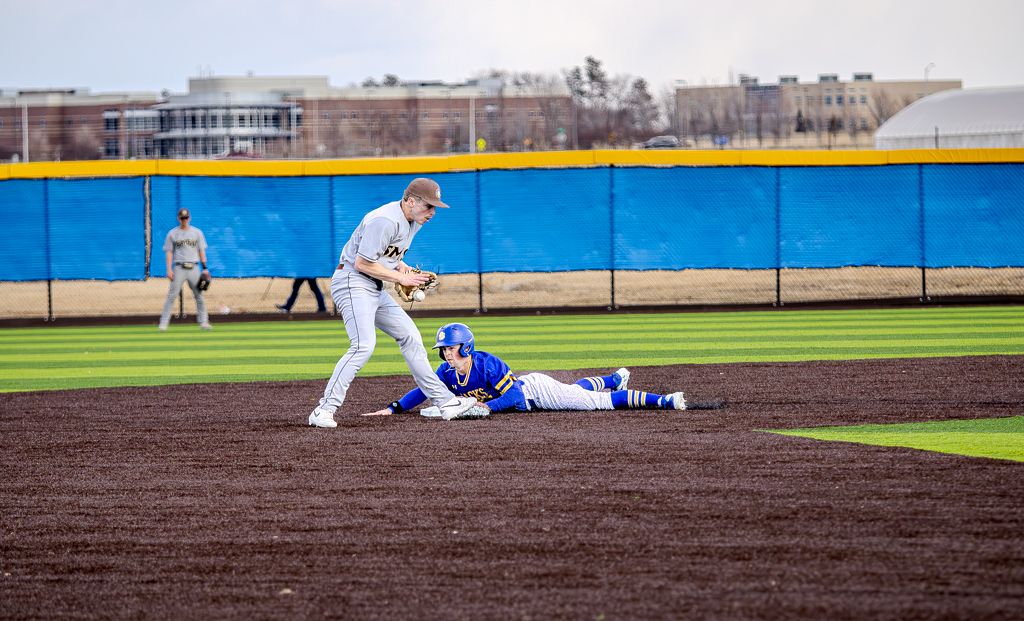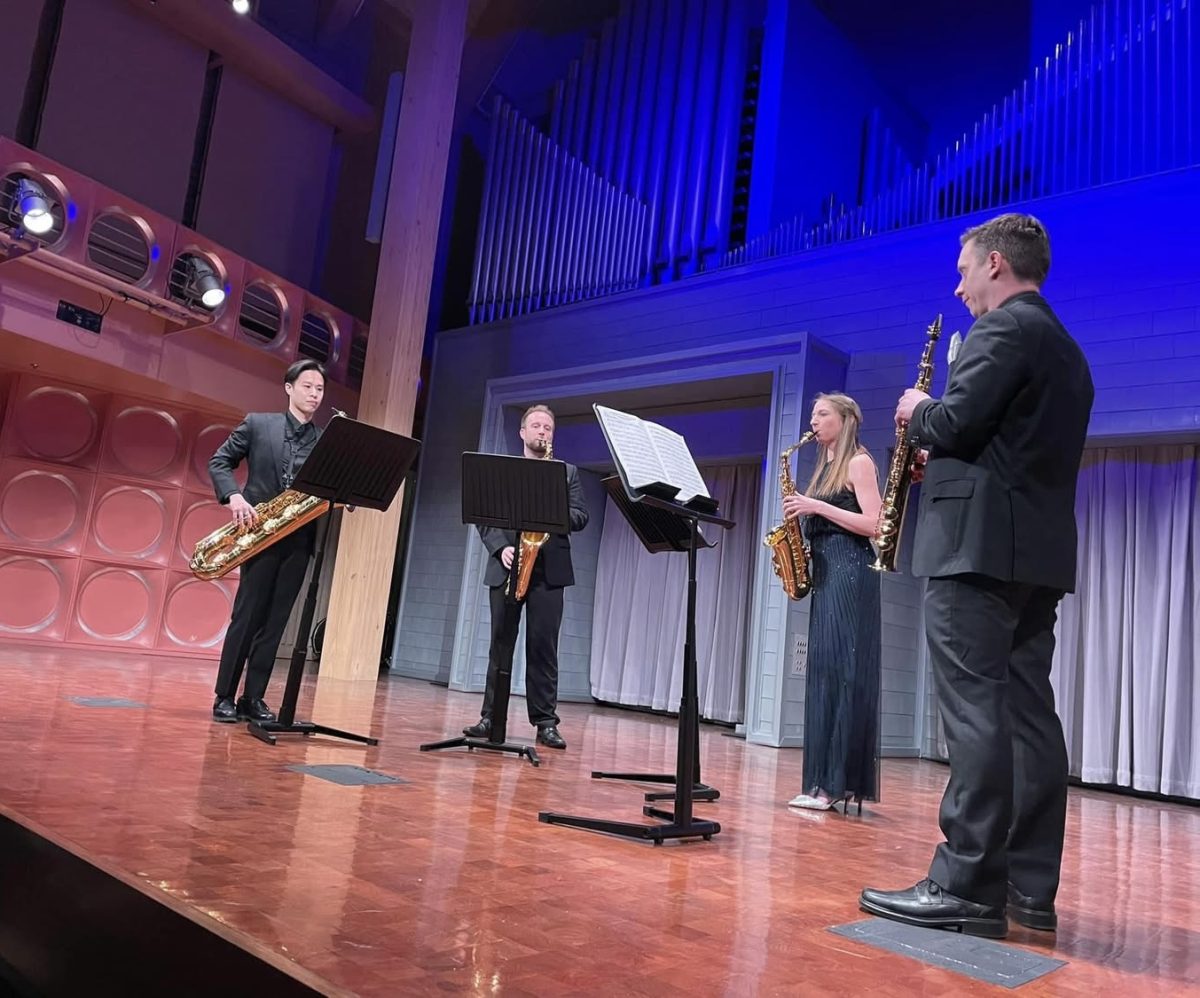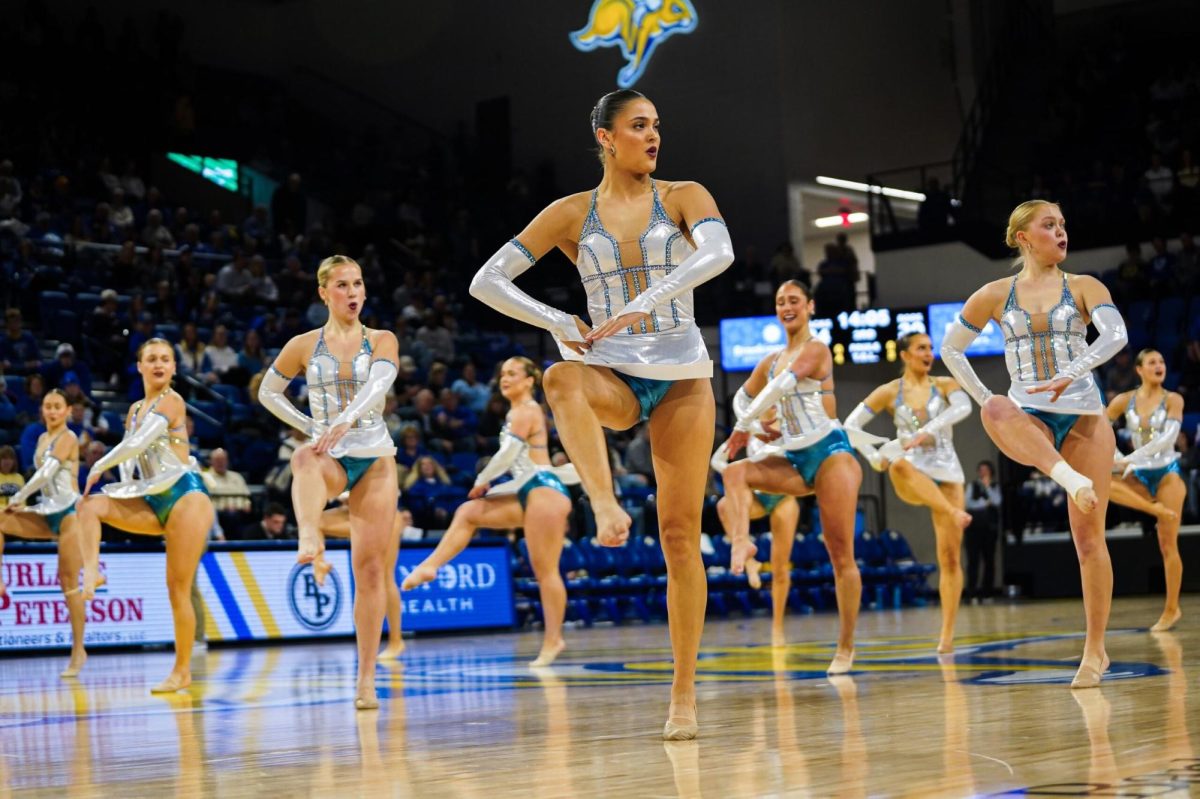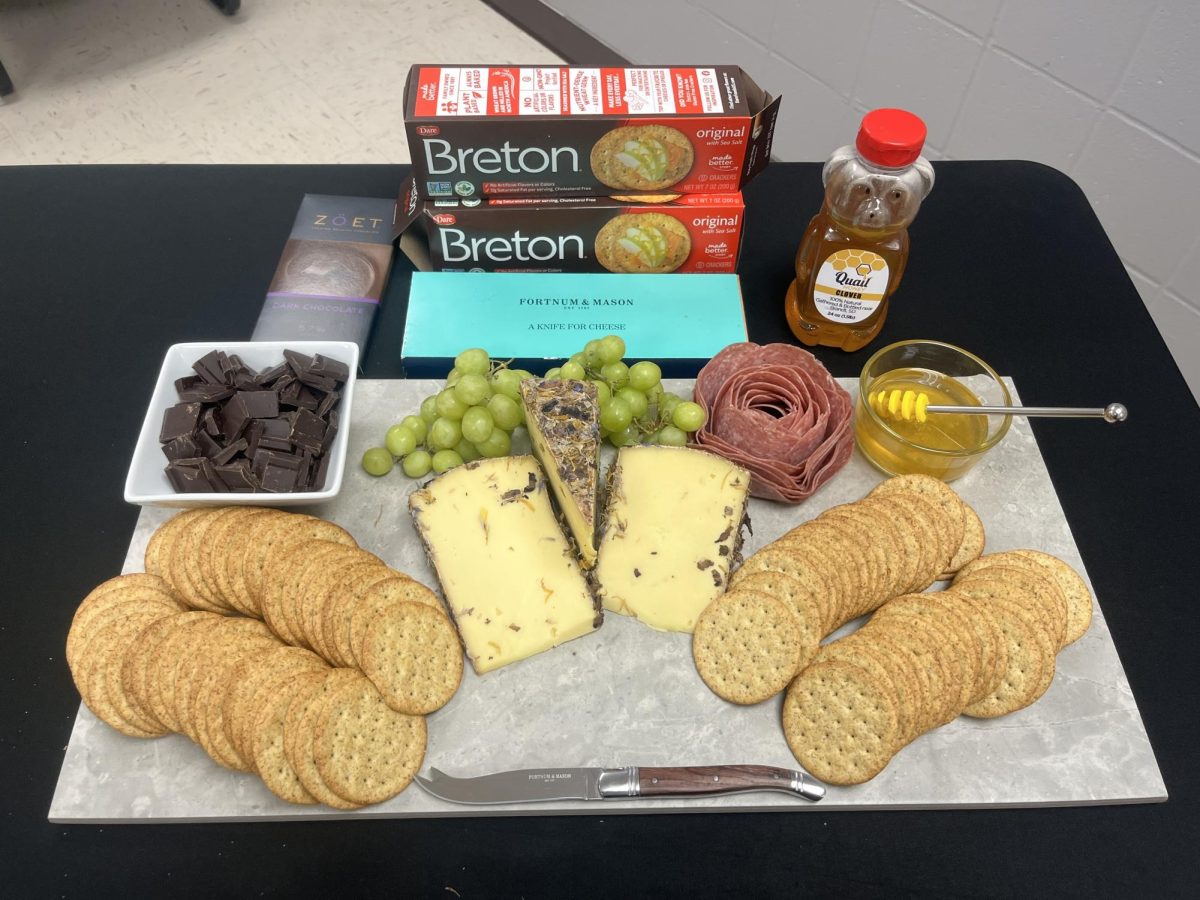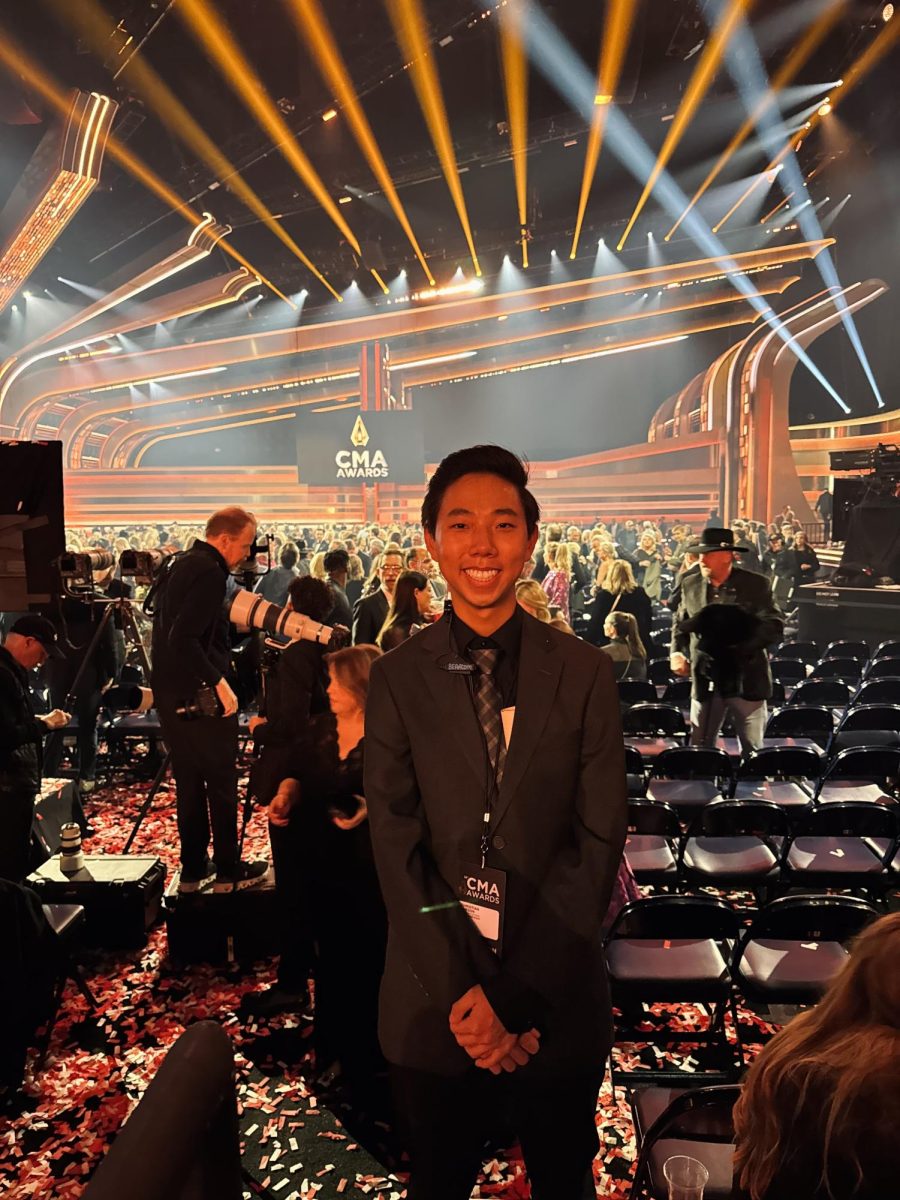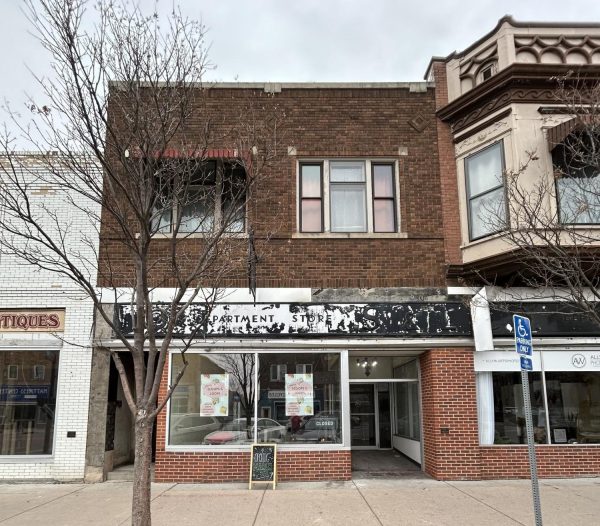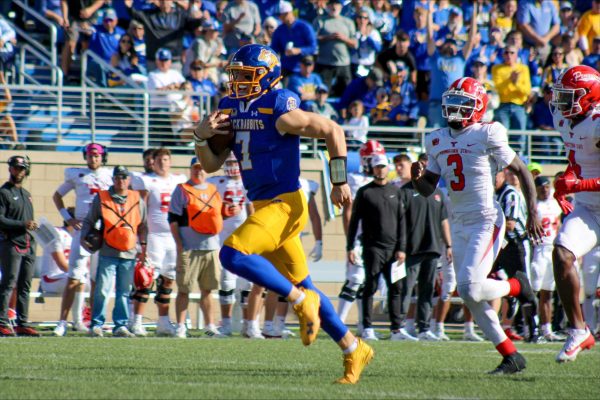Religious groups draw crowds to friends, God
October 25, 2004
Tanya Marsh
The posters are sprayed around campus: “Seek God.” “A step of faith.” “Come and worship with us.”
Student interest in Christian organizations around campus seems to be hitting a high. Most groups are reporting higher attendance than in past years. In addition to large-group meetings once a week, the majority of the clubs also offer weekly Bible studies, activity nights and occasional weekend retreats.
True friends
Students say they’ve made frienships that are deeper and longer-lasting through the religious groups they attend.
“I’m able to just develop meaningful friendship with people,” said Josh Larson, a junior landscape design and Spanish major.
Larson attends events with Campus Crusade for Christ at least once a week and feels the friends he’s gained through the organization are true.
“A friendship with another Christian is so much stronger, so Crusade is where I’ve met my best friends,” he said.
Academic clubs wouldn’t be able to offer the same bonds, students said.
“If I were in the landscape design club, that’s pretty much focused on me and meeting my needs,” Larson said. “Crusade is more than that. There’s the part where you’re focusing not on yourself but on reaching other people.”
Sophomore English major Anita Brands agreed. Brands attends Crusade weekly and finds “deep fellowhsip” there.
“I’m also part of the women’s choir and I have deeper relationships with people at Crusade than I do at women’s choir,” she said.
Andy VanZee, weekly attender of Navigators, said other organizations tend to offer friendships that are more “superficial. You’re not getting past the outer realm of an individual.”
Although the friendships may be deeper in Christian clubs, the human factor isn’t all that draws students to them. There’s also the God aspect.
Bigger than you
With all the stresses of daily college life, junior Katie Maras looks forward to going to InterVarsity large group sessions and smaller Bible studies every week.
“It’s a nice way to be able to sing some worship songs and during the week and just get fired up again about God,” she said.
Maras attends InterVarsity as a supplement to church.
“I just wanted to meet my spiritual needs in an additional way from going to church,” she said. “Just being able to worship in the middle of the week.”
Brands said Crusade has helped her personal relationship with God grow.
“The staff help you out with starting off your relationship with Christ,” she said. “They seek you out and talk with you about things, help you get into a routine of reading the Bible, praying, journaling.”
Growth
Seeking friends or seeking God, leaders and students say students have flocked to Christian groups recently. Many of them are larger now than they have been in their history.
Campus Crusade is the largest of the groups, drawing around 300 people to its weekly meetings. Crusade has had to begin meeting in Rotunda D to accommodate the influx, up from just a handful of students when the group first launched at SDSU a few years ago, members said.
Pastor Bob Chell, the campus pastor for the University Lutheran Center, has served the campus for 12 years. He said this year is the biggest group of worshipers he has seen, with up to 300 students coming to events on a somewhat regular basis.
Each Sunday the University Lutheran Center sees about 70 students worshipping, up from last year’s average of about 50, he said.
He attributes the growth to SDSU’s efforts to keep more students around for the weekend by scheduling Friday classes and offering weekend festivals, games and activities.
“That helps give stability and consistency to our program,” he said.
However, he added that students have to find the services worthwhile to continue to attend.
“They only keep coming if this nurtures their faith,” he said. “Nobody comes out of guilt … or because their mother thinks they should.”
Instead, they come searching for meaning.
“I think most students are looking for … something beyond themselves, something transcendent, and I believe the Gospel speaks to this clearly and in a way the university is not able to,” he said.
Ken Brokmeier, pastor of Our Savior Lutheran Church who is also in charge of the Wisconsin Evangelical Lutheran Synod (WELS) Student Center said he has seen growth in his program, as well.
He said around 50 students participate in activities at the WELS Student Center, up from recent years.
“In the last couple of years we’ve seen an increase in students, especially in the number of kids coming to worship here,” he said.
He said he thinks part of that growth is due to e-mails he’s begun sending out to remind students of activities, and he said numbers may have been boosted with the club’s recent status change to a recognized campus group.
But he understands that behind those factors is the need for God. He compared it to other, more obvious, human needs.
“Why do we eat every day? Our bodies need to. Why do we see the importance of our faith?” he said.
College and Career Fellowship, Brookings Wesleyan Church’s college group, has grown recently. College pastor Rick Wipf said that a few years ago the group attracted about 30 students and now regularly has about 50 at each of its two weekly meetings.
Other, smaller groups are seeing some rise in interest as well. Senior Arlyn Rusche serves as vice president to the United Methodist Student Organization, a group of 15 to 20 students that meet weekly. Although Rusche said he likes the “close-knit community” the group offers, the group is seeking and finding some growth.
“Since last year, I think we have grown a little. We have been looking to increase our numbers a little bit,” he said.
At least one group isn’t following the pattern of growth, but the leader isn’t concerned.
Jeremy Hamilton has been the team leader for InterVarsity at SDSU for six years. While he’s seen the size of the large group fall from more than 60 to 30 or 35 in the past couple of years, he’s not too worried.
“I am more concerned with growth through relationships than growth through posters,” he said.
And the relationships are still going strong in InterVarsity, Hamilton said.
“It’s a place to find friendships as well as a place to find challenge and teaching,” he said. “It’s really a place where relationships are being built.”

